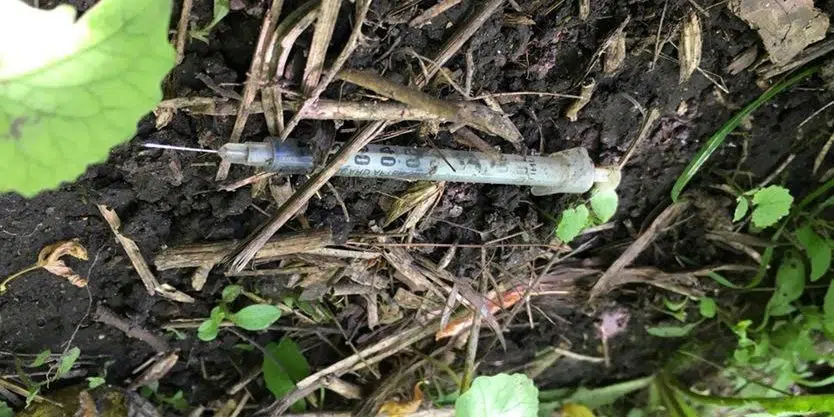
Stock image
The Public Health Officer in Kamloops is weighing in on the idea of banning the use of illicit drugs in the City’s public parks, suggesting she feels it’s a step too far.
Suggesting concerns about increasing stigmatization and pushing people further away from treatment through punishment, Dr. Carol Fenton suggests the city should be looking at other options to stop drug use in public spaces.
“What I see is city council is talking about what I would call a ‘big hammer,'” Fenton said, on NL Newsday. “A bylaw is a fairly restrictive intervention. Let’s start with understanding the problem; why are we seeing unwanted behavior? We are seeing it, let’s understand where that is coming from.”
Fenton says imposing a bylaw on people who use drugs in public spaces, such as the homeless, would cause larger issues.
“Things like bylaws can actually impact people who don’t have a lot of money or people who are unhoused, really severely,” she said. “They cannot afford to pay a fine for example they can often end up in jail.”
Instead, Fenton believes city council should be looking at expanding existing programs – such as more safe consumption sites and other concepts already in play.
“In Kamloops, we have this great intervention where we have peers who do sweeps for needles and other drug supplies to make sure that these things are not found in parks where children and families are present,” she said.
Fenton’s opinion, as the Public Health Officer for Kamloops, could be a deciding factor if the proposed bylaw becomes reality, as it will need the approval of Interior Health and B.C. Health Minister Adrian Dix before it can become the law.
In a statement to RadioNL, the Ministry of Mental Health and Addictions said public intoxication – whether by drugs or alcohol – remains illegal.
It too noted that while local governments “have a range of regulatory tools” to address issues related to public substance use and disorder, it said the province is mindful that “aggressive enforcement activities” like ticketing, may drive people to use drugs alone, adding it could prove fatal.
“BC decriminalized people who use drugs to fight the shame and stigma around addictions,” the statement said. “Breaking down these barriers will help create new pathways to life-saving services and care, so more people will feel comfortable reaching out for lifesaving supports.”
It also noted that decriminalization of illicit drugs for personal use will not change the ability of local governments to pass or amend bylaws around public consumption, noting they’ll have to consult their local Medical Health Officer while also balancing “the goals of public health and public safety when it comes to the issue of public consumption of legal and illegal substances.”
“The Province supports an approach that emphasizes referral to health and social supports, including overdose prevention sites, rather than bylaws that result in further marginalization of people who use drugs,” the statement added.
“Representatives from the City of Kamloops have sat at B.C.’s Decriminalization Core Planning Table since its inception, and the Ministry of Mental Health and Addictions is committed to continuing to work closely with them to address substance use related harms and promote safety for all members of the Kamloops community.”
The statement also said the Ministry of Mental Health and Addictions will continue to work closely with public health, police, local governments, and other partners to update policies and guidelines related to substance use where necessary to mitigate any outstanding issues that arise.
“As evidence and issues arise, BC will work with Health Canada to address concerns while ensuring the framework is successfully providing people pathways to care and not the criminal justice system,” the statement said.
Tuesday’s vote at Kamloops City Council came about following a notice of motion by councillor Katie Neustaeter.
It passed in a 5-2 vote, with Neustaeter, Bill Sarai, Margot Middleton, Stephen Karpuk, and Mayor Reid Hamer-Jackson in favour with Dale Bass and Nancy Bepple opposed. Mike O’Reilly and Kelly Hall were not present for the meeting.
Bass and Bepple cited concerns that these public spaces were the only places where the unhoused can use substances.
















